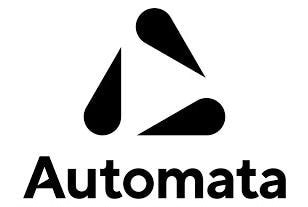Sponsored Content by AutomataReviewed by Louis CastelSep 18 2024
Several factors can influence the decision to purchase lab equipment from an organization's operating expense (OPEX) or capital expenditure (CAPEX) budget. These factors include the specific needs of the lab, the organization’s overall financial strategy, and any budget constraints.
 Image Credit: Jack_the_sparow/Shutterstock.com
Image Credit: Jack_the_sparow/Shutterstock.com
Each budget type comes with its own primary considerations:
Operating expenses (OPEX)
Funding lab equipment via OPEX typically involves renting or leasing the equipment. Payments are made according to a schedule, and the rental or lease cost is expensed during the period this is incurred.
This approach is useful for limiting upfront costs while ensuring flexibility. It is particularly useful for labs reliant on results-based funding rounds for their income.
Source: Automata
| Advantages |
Disadvantages |
| 1. Asset ownership: the equipment becomes an asset on your balance sheet, which can enhance the company’s value |
1. High initial cost: requires significant upfront investment, which might strain the budget or necessitate financing |
| 2. Tax benefits: depreciation of the equipment can provide tax advantages over several years |
2. Depreciation: the value of the equipment decreases over time, which might affect financial statements |
| 3. Long-term use: ideal for equipment that you plan to use for many years without significant technological obsolescence |
3. Budget constraints: may be challenging if CAPEX budgets are limited or if approval processes are lengthy and complex |
| 4. Predictable costs: ongoing costs are generally lower after the initial investment, limited to maintenance and operation |
|
Capital expenditure (CAPEX)
Funding lab equipment via CAPEX typically involves buying the equipment outright, capitalizing this, and then adjusting for depreciation over the course of the equipment’s useful life.
This approach is a good option for significant, long-term investments, which lab equipment often is.
Source: Automata
| Advantages |
Disadvantages |
| 1. Lower upfront costs: ideal for organsations with limited capital or those that prefer to preserve cash flow |
1. No ownership: you do not own the equipment, so it does not become an asset on your balance sheet |
| 2. Flexibility: easier to upgrade or switch to new technologies as they become available |
2. Potentially higher long-term cost: over the long term, leasing or renting might be more expensive than purchasing |
| 3. Predictable monthly expenses help budget and manage cash flow with fixed periodic payments |
3. dependency on vendor: your use of the equipment is tied to the lease agreement, which might include restrictions and obligations |
| 4. Tax deductibility: Lease or rental payments can often be deducted as operating expenses, reducing taxable income in the period they are paid |
|
Key Considerations
1. Financial health and cash flow
CAPEX may be advisable for labs with robust cash reserves, which means they can afford the significant upfront costs linked to lab equipment. OPEX is a better choice for labs focusing on preserving cash flow.
2. Equipment lifespan and technological obsolescence
CAPEX is a good option for equipment with a long and useful life and a low risk of obsolescence. OPEX offers more flexibility, however, making it a better choice for equipment in fast-changing technological fields.
The Automata LINQ platform is modular and flexible, with hardware and software updates included in many of its operating contracts. This means the platform should never become obsolete or unsuitable for the lab’s needs.
3. Budgetary constraints
OPEX may be an alternative for labs where CAPEX budgets are tight or obtaining appropriate approval for large purchases is difficult.
4. Tax considerations
It is crucial to evaluate the tax implications of each budget option, considering the potential for depreciation benefits under CAPEX and immediate expense deductions under OPEX. Additionally, tax advantages such as super-deduction, customs duty exemptions, and VAT breaks should be factored into the decision.
5. Long-term strategic goals
Any spending decisions should be aligned with the organization’s financial planning considerations and long-term strategic goals. Exploring the partnership opportunities that may offer financial benefits for longer-term commitments is also advisable.
Conclusion
The decision between OPEX and CAPEX for lab equipment purchase requires organizations to thoroughly evaluate their strategic goals, financial situation, budgetary constraints, and specific equipment needs.
CAPEX is generally a better option for long-term investments with stable technological needs, while OPEX offers reduced upfront costs and improved flexibility, making it the ideal choice for labs operating in dynamic and rapidly changing environments.
In every case, discussing purchase options with a trusted lab automation solutions provider is important.
Automata offers flexible payment terms for its LINQ lab automation platform, with users having the option to pay in full at purchase or break down deployment costs into smaller chunks across several years. A popular pay-per-plate option is also available.
Acknowledgments
Produced from materials originally authored by Automata Technologies Ltd.
 About Automata
About Automata
Born from a world-leading research lab, Automata is making total workflow automation accessible to labs frustrated by the limitations of their own environment.
Accelerating the innovation evolution
When two architects from Zaha Hadid’s research lab first approached robotics, their idea was to explore applications specific to architectural engineering.
But they soon discovered that modern automation wasn’t just unnecessarily complex – it was actively restricting innovation. And not just within their industry – within many others too. It was clear that robotic automation was a field where their combined experience in computational research and design could make a real difference. Assembling a team of industry experts, Automata was founded, with a clear aim: to enable new opportunities for innovation with automation.
A clearer path to progress
Automata’s focus narrowed on an industry where they felt their expertise could have the most impact – life sciences, and particularly within biolab environments.
Since then, the team has been working closely with leading pathology labs to pioneer protocols that enable labs to scale with precision
Automata Labs is the product of that philosophy – simplifying lab environments and empowering the people working tirelessly in the pursuit of progress.
Sponsored Content Policy: News-Medical.net publishes articles and related content that may be derived from sources where we have existing commercial relationships, provided such content adds value to the core editorial ethos of News-Medical.Net which is to educate and inform site visitors interested in medical research, science, medical devices and treatments.